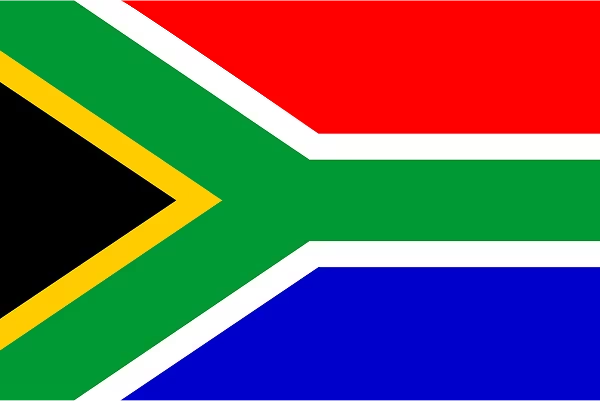Forex License in South Africa
Securing a forex license in South Africa is mandatory for businesses that want to provide forex trading services legally. Regulated by the Financial Sector Conduct Authority (FSCA), this licence ensures compliance with laws, protects client funds, and maintains market integrity. South Africa’s forex market, with daily trading volumes exceeding USD 20 billion by 2023, is the largest in Africa, making it an attractive entry point for brokers and fintech companies.
- Minimum Capital: $300,000 paid-up capital is required.
-
Key Benefits:
- Regulatory recognition and legitimacy
- Easier cooperation with local banks
- Eligible to advertise and serve South African clients
- Strong investor protection laws
- Clear dispute resolution process
-
Restrictions:
- Must have a local South African entity
- Must appoint resident directors and compliance officer
- Must comply with AML/KYC, client fund segregation, and audit requirements
- Foreign brokers without FSCA approval cannot target South African clients
-
Requirements:
- Qualified management based in South Africa.
- Strong AML/KYC compliance policies.
- A registered office in South Africa.
- Processing Time: From 6 to 12 months.
Failing to obtain an FSCA licence can result in heavy fines, business closure, and reputational harm. A valid licence not only ensures legal compliance but also builds trust among stakeholders and opens doors to broader African markets. Ready to start? Follow the structured steps to set up your forex business in South Africa today.
Types of Forex Licences in South Africa
The FSCA offers specific FSP licences that align with different business models, defining what services your forex business can provide and how it can operate.
Category I FSP Licence
The Category I FSP licence is for businesses providing advisory and intermediary services without the authority to make trading decisions for clients. This licence lets you execute client orders in forex and CFDs and offer trading advice, but any trading decisions must be made directly by the client or under their explicit instructions. Subcategories under this licence include Derivative Instruments, relevant for forex and CFD services, and potentially Securities and Instruments if share trading is part of your offerings.
Category II FSP Licence
The Category II FSP licence is essential for companies that manage client funds or execute trades on their behalf. This licence is commonly used by firms offering managed accounts or copy-trading services. It allows the licence holder to hold client funds in a fiduciary role and make investment decisions on their behalf, providing a more hands-on service model.
Over-The-Counter Derivatives Provider (ODP) Authorisation
For brokerages acting as counterparties in OTC derivatives, such as issuing CFDs or forex contracts, ODP authorisation is mandatory. The FSCA enforces this authorisation strictly to ensure compliance and proper oversight in these operations.
| Licence Type | Key Services | Client Funds Authority | Discretionary Trading |
|---|---|---|---|
| Category I FSP | Advisory and intermediary services | No | No |
| Category II FSP | Portfolio management and discretionary trading | Yes | Yes |
| ODP Authorisation | Acting as counterparty in OTC derivatives | Varies | Not applicable |
The FSCA's licensing framework is designed to accommodate a broad range of financial services under a single licence. This approach simplifies the process for businesses looking to expand their services, encouraging growth and diversification without requiring multiple licences.
How to Get a License
Basic Requirements
To secure a Forex license in South Africa, you need to meet specific criteria set by the Financial Sector Conduct Authority (FSCA):
Financial Requirements
- Minimum paid-up capital of $300,000
- Professional indemnity insurance coverage
- A bank statement verifying the capital deposit
Structural Requirements
- Register a company in South Africa with the Companies and Intellectual Property Commission (CIPC)
- Appoint at least one local director and Key Individual approved by the FSCA
- Establish a physical office in South Africa for transparency and client accessibility
- Appoint a compliance officer responsible for AML/KYC and ongoing reporting
- Develop internal policies and manuals, including risk management and client fund protection
Documentation Requirements
- Certified passport copies and proof of residence for shareholders and directors
- Company incorporation documents and Memorandum of Incorporation (MOI)
- CVs and qualifications of Key Individuals and compliance officers
- Criminal record clearance certificates from relevant authorities
- Bank reference letters and proof of capital deposit
- Tax clearance certificate from the South African Revenue Service (SARS)
- Detailed business plan, outlining services, target markets, and operational model
- AML/KYC policies aligned with FSCA and international standards
Make sure all documentation is complete to avoid delays or rejection. Once these steps are completed, you can move on to the application process.
Application Steps
After meeting the basic requirements, obtaining a South Africa Forex License involves two main phases under the supervision of the Financial Sector Conduct Authority (FSCA).
1. Company Setup Phase
Set up your local operations in South Africa by:
- Registering a company with the Companies and Intellectual Property Commission (CIPC) that meets FSCA ownership and governance standards under the Financial Advisory and Intermediary Services (FAIS) Act
- Preparing a comprehensive business plan outlining your financial services, target markets, and operational framework
- Opening a corporate bank account with a licensed South African bank to deposit the required minimum capital
- Securing office space and establishing a local business address as required by FSCA regulations
- Appointing local directors and Key Individuals, ensuring they meet the competency and honesty criteria set by the FSCA
2. License Application Phase
Once your entity is established, proceed with the official application process by:
- Completing and submitting FSCA application forms along with all supporting documentation
- Paying the relevant FSCA application and processing fees
- Appointing a Compliance Officer responsible for AML/CFT and ongoing reporting obligations
- Submitting Key Individual approval applications, as each must be vetted and registered by the FSCA
- Providing proof of financial soundness, professional indemnity insurance, and internal control policies
The FSCA will conduct a thorough due diligence review, which includes background checks on directors and verification of the company’s financial position. Additional clarifications or supporting documents may be requested during this stage.
Pros and Cons
Here’s a closer look at the key advantages and challenges of obtaining a South Africa Forex License, based on the regulatory and operational details discussed earlier.
Benefits
The South Africa Forex License, issued by the Financial Sector Conduct Authority (FSCA), offers a strong reputation and regulatory credibility across global financial markets.
One of the major advantages is its high international recognition. The FSCA is considered one of the most respected regulators in Africa, and its standards align closely with those of major jurisdictions such as the UK’s FCA and Australia’s ASIC. This makes an FSCA license particularly appealing for brokers targeting both African and global clients.
Additionally, operating under FSCA oversight provides:
- Enhanced investor trust due to strong consumer protection policies
- Access to South African banking infrastructure, including major international banks
- Flexibility to offer multiple financial instruments, including CFDs, forex, and securities
- A stable regulatory environment, backed by a well-developed financial services sector
- Opportunities for expansion, as the license allows firms to passport services within parts of Africa
Another benefit is that South Africa offers tax efficiency through various business structures, and maintaining compliance with FSCA standards often improves credibility with payment providers and liquidity partners.
Limitations
While the South Africa Forex License carries prestige, there are several operational challenges to consider:
Operational Requirements
- Firms must maintain a registered office and local staff, including a licensed Key Individual and Compliance Officer.
- The minimum capital requirement (ZAR 5–10 million) is significantly higher than in offshore jurisdictions.
- Companies are required to file annual audited financial statements and maintain ongoing reporting with the FSCA.
- Strict AML/KYC compliance procedures must be implemented and monitored continuously.
Time and Process Constraints
The full licensing process typically takes 6 to 9 months, depending on the complexity of the business model and the FSCA’s review timeline. Delays can occur if additional clarifications or director approvals are required.
Professional Requirements
Applicants must ensure that Key Individuals and representatives meet the FSCA’s “fit and proper” competency criteria, including qualifications, experience, and integrity checks. Hiring and approving qualified personnel can extend the setup time and increase operational costs.
Fees and Maintenance
License Costs
To obtain a South Africa Forex License, you must meet the minimum paid-up capital requirement of between ZAR 5–10 million (approximately USD 300,000–600,000), depending on your business model and license type.
In addition to the capital requirement, companies must budget for professional indemnity insurance, legal and compliance advisory services, and application fees payable to the Financial Sector Conduct Authority (FSCA). These are ongoing operational costs rather than one-time expenses.
Annual Renewal
Keeping your license active requires continuous compliance with FSCA regulations. Annual renewal obligations include:
- Maintaining the required minimum capital adequacy ratio
- Keeping professional indemnity insurance up to date
- Submitting annual audited financial statements to the FSCA
- Ensuring Key Individuals and Representatives remain fit and proper
- Paying annual regulatory renewal fees
Failure to meet these obligations can result in administrative penalties or license suspension.
Ongoing Compliance
Operating with a South Africa Forex License involves meeting strict regulatory and operational standards. Below is a summary of the core compliance requirements:
| Compliance Requirement | Details |
|---|---|
| Company Registration | Must be registered with the CIPC and maintain a valid business address in South Africa |
| Capital Maintenance | Maintain minimum paid-up capital of ZAR 5–10 million |
| Professional Coverage | Keep active professional indemnity insurance as required by the FSCA |
| Regulatory Reporting | Submit annual audits, compliance reports, and financial statements |
| Key Individuals | Appoint and maintain FSCA-approved Key Individuals and Compliance Officer |
| AML/KYC Procedures | Implement and regularly update anti-money laundering and client verification policies |
Summary
The South Africa Forex License offers brokers a highly credible and internationally respected regulatory framework under the supervision of the FSCA. Though more demanding than offshore jurisdictions, it provides strong operational legitimacy for firms seeking sustainable, transparent growth.
Here’s a quick recap of the main details:
| Key Aspect | Details |
|---|---|
| Initial Capital | ZAR 5–10 million (USD 300,000–600,000) minimum paid-up capital |
| Processing Time | 6–9 months |
| Core Requirements | South Africa company registration, local office, Key Individual, Compliance Officer |
| Regulatory Authority | Financial Sector Conduct Authority (FSCA) |
| Annual Obligations | Audited financial statements, capital maintenance, insurance renewal |
| License Type | Financial Service Provider (FSP) License under FAIS Act |
Maintaining an FSCA license requires ongoing diligence — including yearly audits, capital verification, and compliance monitoring — but provides strong international credibility, trust among investors, and long-term operational stability.


















